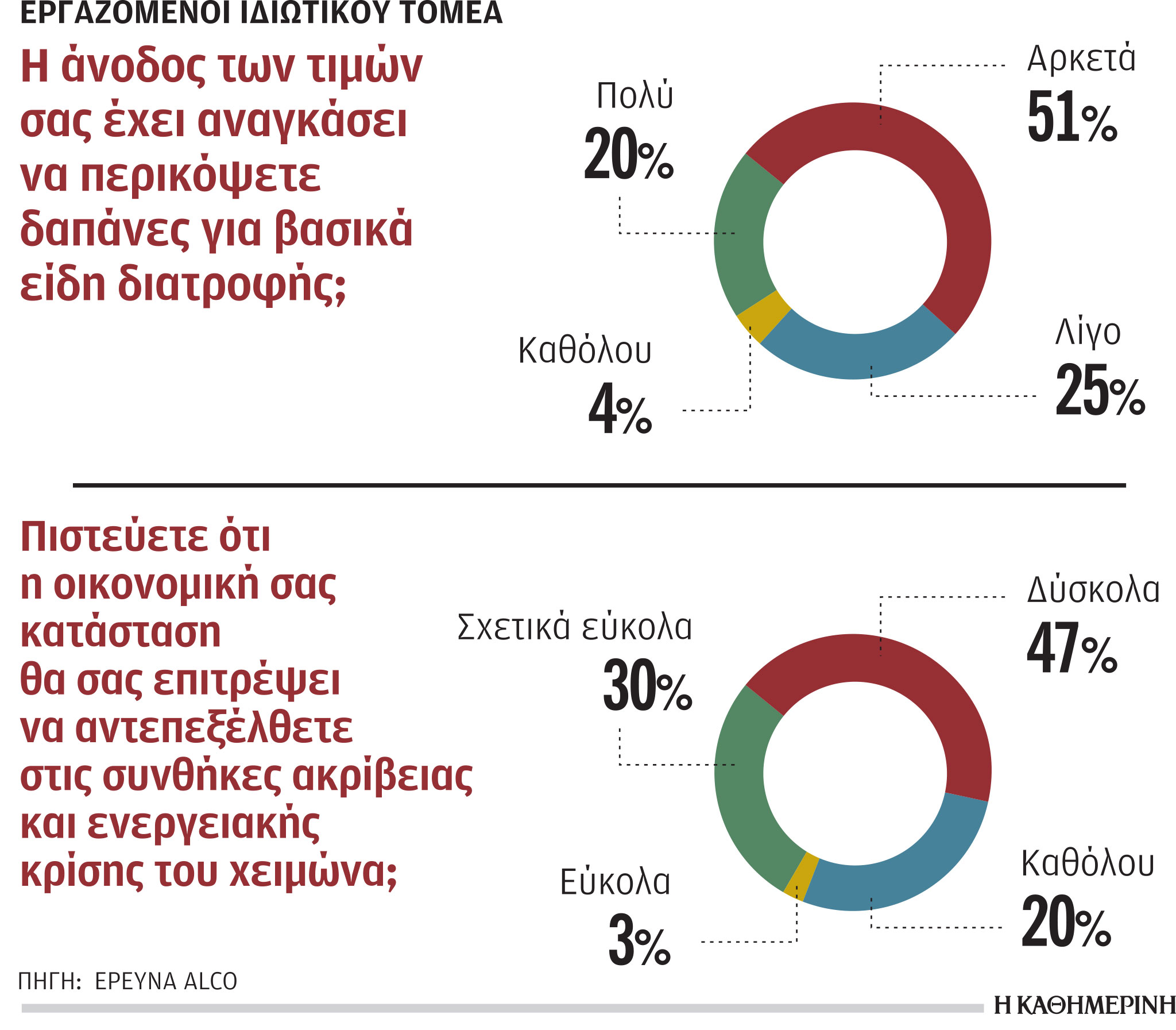
Seven out of 10 employees have reduced their consumption of staple foods. accuracy he “eats off” almost 20% of their fees. It is characteristic that in July more than 19% of the purchasing power of paid minimal salarywhile the losses are even greater, by 29.2%, in the case of part-timers.
The danger bell is ringing nearly one in two private sector workers saying they will have a hard time coping with the explosive cocktail created by the energy crisis and precision. GSEE, drawing on the results of the investigation conducted by ALCO on its behalf, stressed yesterday, during the usual press conference in Thessaloniki in connection with the opening of TIF, the need to increase the minimum wage, as well as other wages, indicating that in 2022 only 20% of employees increased their wages.
Presenting the results of economic indicators, INE/GSEE scientific director Giorgos Argeitis emphasized that consumption remains strong despite the accuracy, but something that will not be able to continue, because in order for consumption growth to be sustainable, they must increase wages and employment . Conversely, it cannot become sustainable if it relies on benefits. Mr. Argaitis also mentioned the GSEE proposal to reduce VAT on food, mainly for vulnerable groups, given that VAT receipts from petroleum products and food increased by $2.8 billion.
As confederation president Yiannis Panagopoulos noted, according to a study by the confederation of European trade unions, workers in France and Romania need 30 days to cover the increased cost of energy, in Greece – 54 days of work, and in the Czech Republic 65. Also, to pay the annual electricity bill in Lithuania 11 working days are required, while in Greece it is 36. In fact, under the slogan “workers pay for punctuality”, Mr. Panagopoulos said that he would recommend to the GSEE management, in connection with the presentation of the budget, a 24-hour general strike in the first decade of November .
The difficulty employees have to cope with punctuality is illustrated by data from a study conducted by Alco in collaboration with INE/GSEE on a sample of 1,500 private sector employees between August 31 and September 5.
According to the results of the survey, the increase in the minimum wage does not apply to other categories of workers in the non-state sector. Thus, 80% of employees say that there was no increase in their wages during 2022.
On the contrary, the effect of accuracy is almost universal. 71% of private sector workers say they have been forced to cut spending on basic food. 70% said that they are not coping – from very much to completely – with the difficulties of this winter. 63% said that the only solution is to raise wages and especially the minimum wage. 40% said they work more hours and 60% said they work the agreed hours. 38% said they work more than 10 hours. The output appears at an increased percentage compared to previous measurements. 50% of workers said they were paid for overtime, and 50% said it remained unpaid.
Source: Kathimerini
Lori Barajas is an accomplished journalist, known for her insightful and thought-provoking writing on economy. She currently works as a writer at 247 news reel. With a passion for understanding the economy, Lori’s writing delves deep into the financial issues that matter most, providing readers with a unique perspective on current events.